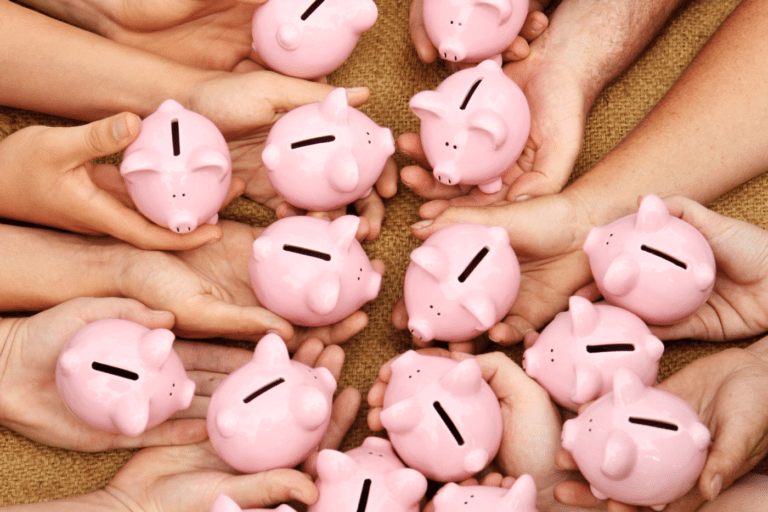Ever felt like social situations are more like a haunted house than a friendly gathering? Does the idea of mingling with others make your heart race and palms sweaty? You’re not alone. Social anxiety can turn even the simplest interactions into a mental maze, leaving you feeling stuck.
But here’s the good news – it doesn’t have to be this way. We’ve got your back with seven tried-and-true ways to overcome social anxiety.
If you’ve ever found yourself dodging events, feeling those pre-social butterflies, or replaying awkward moments in your mind, this guide is your compass through the social wilderness.
What is social anxiety?

Social anxiety, also known as social anxiety disorder (SAD), is a mental health condition characterized by a persistent and overwhelming fear of social situations.
This fear can encompass various scenarios, from public speaking and meeting new people to participating in group activities or engaging in everyday conversations.
What are the symptoms of social anxiety?
- Intense Social Fear: Feeling like all eyes are on you, and it’s not in a good way.
- Pre-Event Jitters: Those butterflies in your stomach gearing up before a social gathering.
- Avoidance Tactics: Ever skipped a social event to dodge that anxiety? You’re not alone.
The Impact: Not Just Jitters
Social anxiety isn’t just about feeling a bit shy; it can cramp your style in everyday life:
- Relationship Hurdles: Making connections can be tough if you constantly fear being judged.
- Work Challenges: Ever feel anxious about speaking up in a meeting? Or maybe, despite your talents, your colleagues still don’t quite have your name down.
- Overall Well-being: Not being able to present yourself in the way you really are can take a toll on your mental health and happiness.
- Excessive Self-Consciousness: Every social interaction feels like a performance review, and you’re the main act. It’s that heightened awareness of yourself in social settings that sets social anxiety apart.
- Physical Tell-Tales: Your body becomes a messenger of anxiety with classic symptoms like sweating, trembling, or even a racing heart.
Self-Reflection Test: Do I have social anxiety or am I just shy?
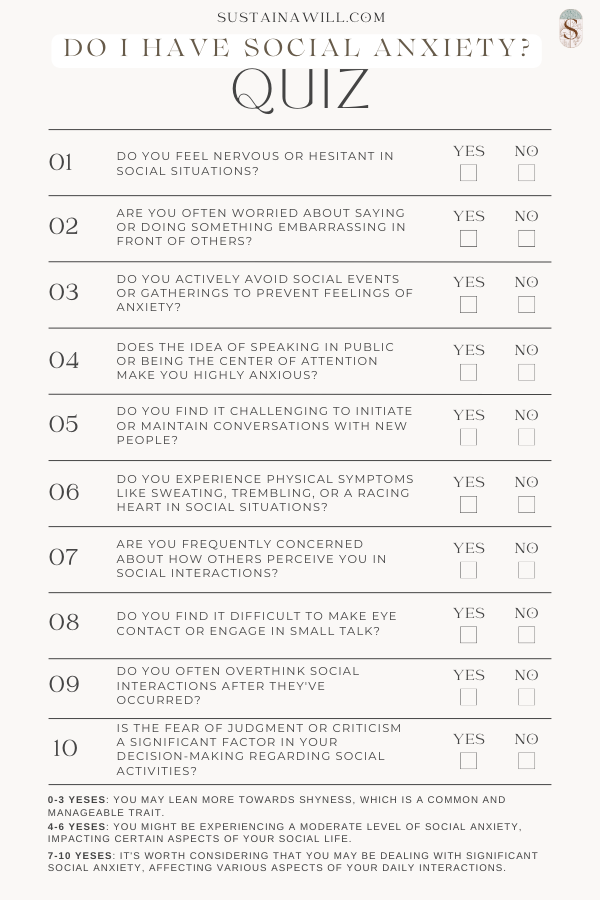
Answer these 10 questions with a simple “Yes” or “No” to gain insights into whether you might be experiencing shyness or social anxiety.
Remember, this is not an official diagnostic tool, but it might offer some clarity.
- Do you feel nervous or hesitant in social situations?
- Are you often worried about saying or doing something embarrassing in front of others?
- Do you actively avoid social events or gatherings to prevent feelings of anxiety?
- Does the idea of speaking in public or being the center of attention make you highly anxious?
- Do you find it challenging to initiate or maintain conversations with new people?
- Do you experience physical symptoms like sweating, trembling, or a racing heart in social situations?
- Are you frequently concerned about how others perceive you in social interactions?
- Do you find it difficult to make eye contact or engage in small talk?
- Do you often overthink social interactions after they’ve occurred?
- Is the fear of judgment or criticism a significant factor in your decision-making regarding social activities?
Evaluation
- 0-3 Yeses: You may lean more towards shyness, which is a common and manageable trait.
- 4-6 Yeses: You might be experiencing a moderate level of social anxiety, impacting certain aspects of your social life.
- 7-10 Yeses: It’s worth considering that you may be dealing with significant social anxiety, affecting various aspects of your daily interactions.
If you resonate with the questions or if these feelings impact your well-being, consult with a healthcare professional or mental health expert for personalized guidance and support. They’re here to help navigate your unique experience.
7 Strategies to Overcome Social Anxiety
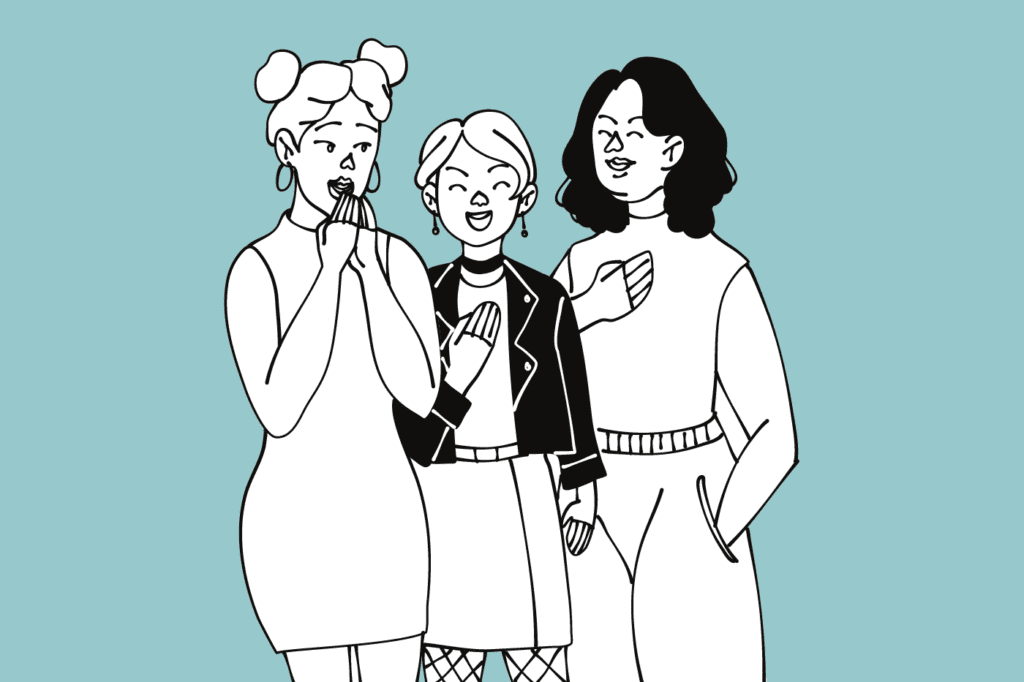
1. Gradual Exposure
Ease into social situations gradually. Start with small, manageable interactions and progressively increase the complexity. It’s totally okay to feel a bit hesitant, and the key is to take it step by step.
Here are some actions you can consider:
- Start Saying “Hi” to a Neighbor:
- Begin with a friendly greeting. It’s a simple yet effective way to kick off positive interactions in your community.
- Attend Small Social Gatherings:
- Choose intimate gatherings with close friends or family. These settings offer a cozy space to practice socializing without any overwhelming crowds.
- Engage in Casual Conversations at Work:
- Break the ice with light conversations during coffee breaks or lunch. It’s a relaxed way to connect with colleagues on a personal level.
- Join a Club or Group:
- Find a group aligned with your interests. Shared hobbies provide a fantastic backdrop for socializing with like-minded individuals.
- Volunteer for Small Tasks in Group Settings:
- Offer a helping hand in group activities. It not only makes you an integral part of the team but also encourages positive interactions.
- Participate in Online Forums or Discussions:
- Dip your toes into online communities related to your passions. It’s a great way to socialize digitally before transitioning to face-to-face interactions.
- Attend Social Skills Workshops or Classes:
- Enroll in workshops designed to enhance social skills. These settings are perfect for learning and practicing in a supportive environment.
- Invite a Friend for Coffee or a Walk:
- Opt for one-on-one time with a friend. It’s a comfortable setting to socialize and build your confidence at your own pace.
- Initiate a Conversation with a Classmate or Co-worker:
- Strike up a chat with someone you see regularly. It could be a classmate, co-worker, or someone from your extended social circle.
- Attend Low-Key Social Events:
- Choose events with a laid-back vibe, like a casual dinner or movie night. These settings offer social interaction without the pressure of larger gatherings.
Remember, you’re in control of this journey. Take each step when you feel ready, and celebrate your progress along the way. You’ve got this.
2. Bring Excitement in Your Life
Shake up your routine – it’s a powerful step in overcoming social anxiety. By infusing your days with moments that make your heart race with anticipation, you’re gradually rewiring your brain to associate social experiences with joy and enthusiasm.
- Plan a Spontaneous Day Out:
- No need for a meticulously planned itinerary. Grab a friend or head out solo, and let the day unfold with spontaneity. It could be a visit to a local museum, a hike, or even a day at the beach.
- Attend a Live Event or Show:
- Whether it’s a concert, theater performance, or sports game, live events bring a unique energy. Check out what’s happening in your area and treat yourself to a night out.
- Take a Mini Road Trip:
- Hit the road and explore nearby towns or scenic spots. A change of scenery, even for a day, can be incredibly refreshing.
- Challenge Yourself:
- Set a personal challenge, be it a fitness goal, learning a new skill, or tackling a DIY project. The sense of accomplishment that comes with conquering challenges is pure excitement.
- Host a Game Night or Dinner Party:
- Bring your friends together for a fun-filled evening. Games, laughter, and good food create an atmosphere of joy and excitement.
- Take a Spur-of-the-Moment Trip:
- If your schedule allows, why not plan a last-minute getaway? It doesn’t have to be far – even a nearby town can offer a refreshing change.
- Join a Club or Group:
- Connect with people who share your interests. Whether it’s a book club, hiking group, or photography class, being part of a community adds an exciting social element to your life.
- Embrace the Unknown:
- Say “yes” to unexpected invitations or opportunities. Stepping into the unknown can lead to some of the most exhilarating experiences.
Remember, excitement is a personal journey, and it’s all about what lights up your spirit. So, go ahead, embrace the thrill, and make each day a little more exciting.
3. Cultivate Social Skills
Ready to sharpen those social skills and make your interactions even more enriching? Fantastic!
Here’s a specific action to cultivate those skills:
- Say “I Am Nervous”:
- Transparency is a superpower. If you’re feeling a bit jittery in a social setting, don’t hesitate to express it. Saying, “I am nervous” not only humanizes you but also opens the door for genuine connections. Others may relate, share their experiences, or offer reassurance. Vulnerability can be a bridge to stronger connections.
- Practice Active Listening:
- Engage fully in conversations by practicing active listening. Focus on what the other person is saying without formulating your response. This not only demonstrates genuine interest but also enhances the quality of your interactions.
- Initiate Conversations with Strangers:
- Break the ice by striking up conversations with people you don’t know. Whether it’s at a networking event, a social gathering, or even waiting in line, initiating small talk can significantly boost your social confidence.
- Maintain Eye Contact:
- Establish a connection by maintaining eye contact during conversations. It conveys confidence, sincerity, and a genuine interest in the person you’re talking to.
- Ask Open-Ended Questions:
- Encourage deeper conversations by asking open-ended questions. These prompt thoughtful responses and create opportunities for meaningful dialogue.
- Attend Social Skills Workshops:
- Explore workshops or classes specifically designed to enhance social skills. These environments provide structured guidance and opportunities for practical learning.
- Observe Social Cues:
- Pay attention to non-verbal cues such as body language and facial expressions. Understanding these cues allows you to navigate social situations more effectively.
- Practice Empathy:
- Put yourself in others’ shoes and practice empathy. Understanding different perspectives fosters a more compassionate and inclusive approach to social interactions.
- Join Social Groups:
- Be part of social groups that align with your interests. Shared activities provide a natural context for socializing and building connections.
- Reflect on Social Interactions:
- After social events, take a moment to reflect on your interactions. Identify what went well, areas for improvement, and strategies for enhancing future social engagements.
Remember, cultivating social skills is an ongoing journey. Take each step at your own pace, and celebrate the progress you make along the way.
4. Practice Mindfulness
Embrace mindfulness techniques to stay present in the moment. Mindfulness can help ground you and reduce the overwhelming thoughts associated with social anxiety.
- Practice Mindful Breathing:
- Start by focusing on your breath. Take slow, intentional breaths, and pay attention to the sensation of each inhale and exhale. This simple practice (especially incorporated in a mindful morning routine) can anchor you in the present moment.
- Body Scan Meditation:
- Conduct a body scan to bring awareness to different parts of your body. Begin with your toes and gradually move up to the top of your head. This practice helps release tension and fosters a connection between your mind and body.
- Mindful Observation:
- Engage your senses by mindfully observing your surroundings. Notice the colors, textures, and sounds without judgment. This practice heightens your awareness and brings you into the present moment.
- Mindful Walking:
- Take a leisurely walk while being fully present in each step. Feel the ground beneath your feet, notice the rhythm of your walking, and appreciate the sights and sounds around you.
- Guided Mindfulness Meditation:
- Utilize guided meditation sessions available online or through apps. These sessions provide structured guidance, making it easier to cultivate mindfulness, especially for beginners.
- Mindful Eating:
- Transform your meals into mindful experiences. Pay attention to the flavors, textures, and smells of your food. Eating with awareness enhances the enjoyment of the culinary experience.
- Gratitude Journaling:
- Dedicate a few moments each day to reflect on things you’re grateful for. This practice shifts your focus to positive aspects of your life, promoting a sense of gratitude and contentment.
- Mindful Pause:
- Before entering a social situation, take a mindful pause. Close your eyes, take a few deep breaths, and center yourself. This brief moment of mindfulness can help calm nerves and reduce anxiety.
- Mindful Listening:
- Practice being fully present when someone is speaking. Avoid distractions and truly listen to what they’re saying. Mindful listening fosters deeper connections and understanding in conversations.
- Set Mindful Intentions:
- Begin your day by setting mindful intentions. Clarify what you hope to achieve and how you want to show up in various situations. This practice creates a mindful framework for your day.
Remember, mindfulness is a skill that develops with practice. Start with small steps, and gradually incorporate these techniques into your daily routine.
5. Build Self-Confidence
Focus on building your self-confidence. Celebrate small victories, acknowledge your strengths, and remind yourself of past successes.
Here are specific actions, along with a couple of bonus ideas, to help you build self-confidence:
- Focus on Small Victories:
- Acknowledge and celebrate the small wins in your life. Whether it’s completing a task, overcoming a challenge, or stepping out of your comfort zone, each victory contributes to your confidence.
- Acknowledge Your Strengths:
- Take a moment to recognize and appreciate your strengths. What are you good at? What qualities make you unique? Embracing your strengths builds a solid foundation for self-confidence.
- Remind Yourself of Past Successes:
- Reflect on past achievements and successes. Reminding yourself of challenges you’ve conquered and goals you’ve achieved reinforces your ability to overcome obstacles and succeed.
- Sign Up for a Cause:
- Channel your energy into a cause you believe in. Volunteering or supporting a meaningful cause not only makes a positive impact on others but also contributes to your sense of purpose and confidence.
- Read Inspirational Quotes:
- Draw inspiration from the wise words of others. Reading quotes from individuals who have faced challenges and emerged stronger can be a powerful motivator for building confidence.
- Set Realistic Goals:
- Establish achievable goals that align with your aspirations. Accomplishing these goals, no matter how small, fuels your belief in your capabilities.
- Practice Positive Affirmations:
- Incorporate positive affirmations into your daily routine. Affirmations like “I am capable,” “I believe in myself,” and “I am worthy of success” can reshape your mindset and boost confidence.
- Surround Yourself with Supportive People:
- Build a circle of supportive friends and family. Positive relationships contribute to a nurturing environment where you feel valued and encouraged.
- Learn and Develop New Skills:
- Invest time in learning and developing new skills. Acquiring knowledge and honing your abilities enhances your competence and, consequently, your confidence.
- Embrace Failure as a Learning Opportunity:
- Understand that failure is a natural part of growth. Instead of viewing it as a setback, see it as an opportunity to learn, adapt, and come back even stronger.
Remember, building self-confidence is a continuous journey, and every step you take matters. Celebrate your progress, embrace challenges, and watch your confidence soar.
6. Try Herbal Treatments
Ah, the realm of herbal treatments—nature’s gentle allies that may lend a helping hand in easing the grip of social anxiety.
Herbs, known for their centuries-old healing properties, have an uncanny ability to soothe both body and mind.
Let’s explore some options you can use in your journey of healing social anxiety:
- Experiment with Herbal Teas:
- Incorporate herbal teas into your daily routine. Options like chamomile, lavender, and peppermint are known for their calming properties. Enjoy a cup in the evening to unwind and relax.
- Consider Adaptogenic Herbs:
- Explore adaptogenic herbs such as ashwagandha, holy basil, and rhodiola. These herbs are believed to help the body adapt to stress and promote a sense of balance. Consult with a healthcare professional before adding these supplements to your routine.
- Lavender Essential Oil:
- Experience the calming aroma of lavender essential oil. You can diffuse it in your living space, add a few drops to a bath, or use it in a roller for a soothing scent throughout the day.
- Valerian Root:
- Valerian root is renowned for its potential to promote relaxation and improve sleep. Consider valerian root supplements, but always consult with a healthcare provider to ensure they align with your health needs.
- Passionflower Extract:
- Passionflower is often used to ease feelings of anxiety and restlessness. Explore passionflower extract in various forms, such as capsules or tinctures, after consulting with a healthcare professional.
- Chamomile Supplements:
- Chamomile is well-known for its calming properties. If you’re not a fan of tea, consider chamomile supplements in the form of capsules or tablets. Again, seek guidance from a healthcare provider.
- Consult with a Herbalist:
- If you’re considering herbal treatments, consulting with a qualified herbalist can provide personalized advice based on your individual needs and health history.
- Explore Relaxing Herbal Blends:
- Look for herbal blends designed specifically for relaxation and stress relief. These blends often combine various herbs known for their calming effects, creating a synergistic impact.
Remember, while herbal treatments can be beneficial, it’s crucial to approach them with awareness and caution. Always consult with a healthcare professional, especially if you have existing health conditions or are taking medications.
7. Seek Professional Support
Consider therapy, particularly cognitive-behavioral therapy (CBT), which is effective in treating social anxiety. A mental health professional can provide tailored strategies and support.
Here are specific actions to consider, along with some insights:
- Consider Cognitive-Behavioral Therapy (CBT):
- Cognitive-Behavioral Therapy (CBT) is a well-established and effective approach for treating social anxiety. It focuses on identifying and challenging negative thought patterns while developing coping strategies for social situations.
- Connect with a Mental Health Professional:
- Reach out to a mental health professional, such as a psychologist or therapist, who specializes in treating social anxiety. They can conduct an assessment, understand your specific challenges, and tailor a treatment plan to meet your needs.
- Explore Online Therapy Options:
- If in-person sessions are challenging, consider exploring online therapy platforms that offer virtual sessions. Online therapy provides accessibility and convenience while maintaining the effectiveness of therapeutic interventions.
- Group Therapy for Social Anxiety:
- Group therapy, specifically designed for individuals with social anxiety, can be a supportive and transformative experience. Sharing experiences with others facing similar challenges fosters a sense of understanding and camaraderie.
- Build a Therapeutic Relationship:
- Establishing a trusting and collaborative relationship with your mental health professional is key. Feel free to discuss your goals, concerns, and preferences to ensure the therapeutic process aligns with your needs.
- Practice Consistency:
- Consistency is crucial in therapy. Attend sessions regularly, actively engage in the process, and complete any suggested homework or exercises. The cumulative effect of consistent effort contributes to positive outcomes.
- Open Communication:
- Maintain open communication with your therapist. If certain strategies aren’t resonating or if you have new insights, share them. The therapeutic journey is a collaborative one, and your input is valuable.
Remember, seeking professional support is a proactive and empowering choice. A mental health professional can provide valuable insights, tools, and support as you navigate the journey towards managing social anxiety.
What Causes Social Anxiety?
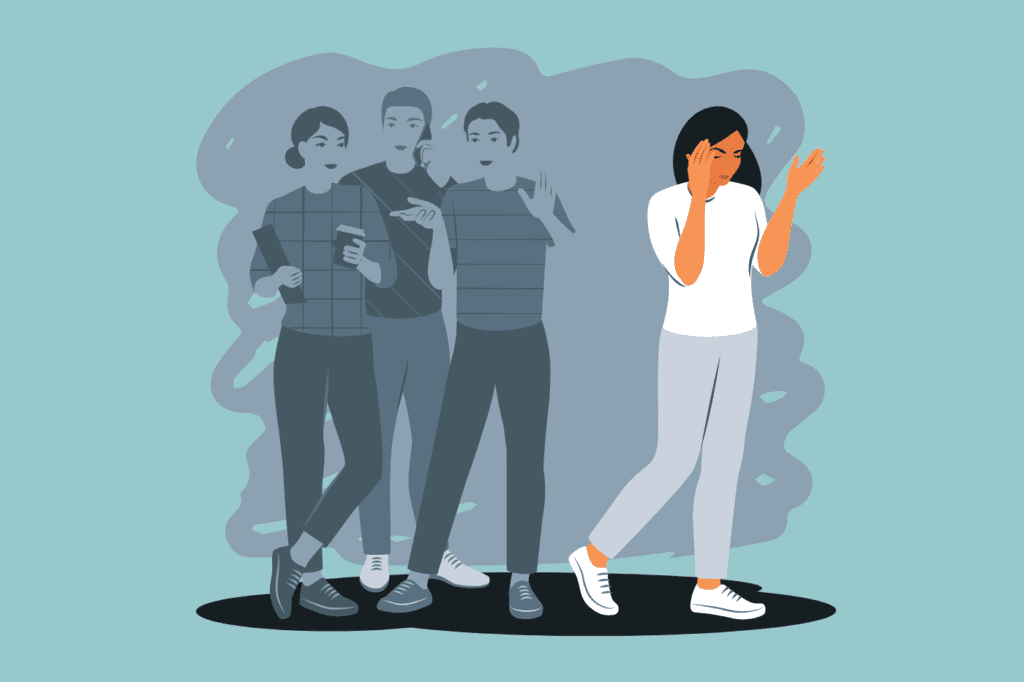
Social anxiety disorder, also known as social phobia, can be influenced by a combination of factors.
Here are some potential contributors:
1. Genetic Predisposition
You know how you inherited that eye color from grandma? Well, social anxiety can also run in the family.
There may be a genetic component to social anxiety. If there’s a family history of anxiety disorders, individuals may be more susceptible.
2. Brain Structure and Function
Your brain’s wired uniquely, and sometimes the fear and anxiety zones are doing a little too much cha-cha during social moments.
Differences in brain structure and function, particularly in areas associated with fear and anxiety responses, may contribute to social anxiety.
3. Environmental Factors
Early experiences, especially the not-so-great ones, can leave a lasting mark. Social anxiety might just be a souvenir from those times.
4. Social Learning
Remember learning your ABCs? Well, we also learn social behavior, and if those lessons come with a side of awkwardness, social anxiety might sneak in.
Observing or experiencing negative social interactions can contribute to the development of social anxiety. Individuals may learn to associate social situations with fear and avoidance.
5. Personality Traits
If you’ve always been a bit on the shy or self-critical side, social anxiety might decide to join the personality party.
Certain personality traits, such as shyness or a tendency to be self-critical, may increase the likelihood of developing social anxiety.
6. Biological Factors
Sometimes, it’s all about the brain chemicals.
Imbalances in neurotransmitters, particularly serotonin, dopamine, and gamma-aminobutyric acid (GABA), may play a role in social anxiety.
What Makes Social Anxiety Worse?
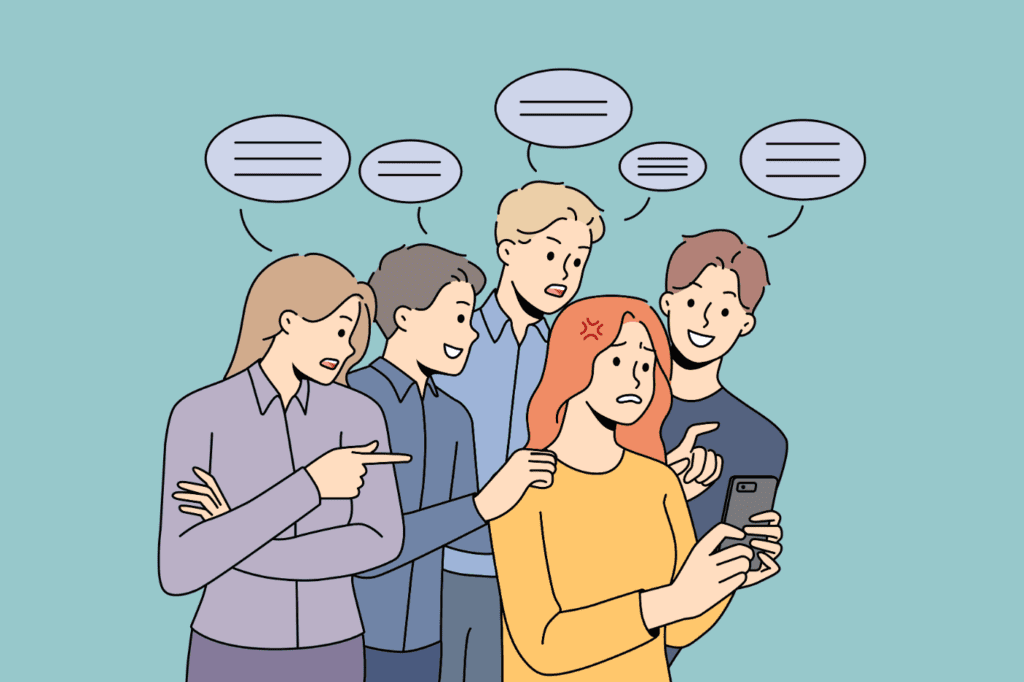
Several factors can exacerbate social anxiety or contribute to its persistence:
1. Negative Social Experiences
Ever caught yourself replaying a cringe-worthy social moment? Yeah, that replay button can amp up social anxiety.
Past negative experiences, such as rejection or embarrassment in social situations, can reinforce social anxiety and make it more challenging to engage in similar situations.
2. Excessive Self-Focus
Being a bit too self-focused during social situations can turn into a solo performance of “All Eyes on Me” in your head.
Individuals with social anxiety often engage in heightened self-focus, paying excessive attention to their perceived flaws or potential negative judgments from others.
3. Avoidance Behaviors
Avoiding social situations might feel like a quick fix, but it’s like putting a Band-Aid on a deeper issue. It can make social anxiety hang around longer.
Avoiding social situations to manage anxiety provides short-term relief but reinforces the belief that these situations are threatening. Over time, avoidance can exacerbate social anxiety.
4. Unrealistic Social Standards
Setting sky-high expectations for your social performance can turn the spotlight on anxiety. Realistic standards? Now, that’s the VIP pass to a calmer you.
Setting unrealistically high standards for social performance can contribute to anxiety. The fear of falling short of these standards can be overwhelming.
5. Lack of Social Skills
Feeling like your social skills need an upgrade? Not to worry – skills are meant to be learned and polished, not inherited.
A perceived lack of social skills or fear of social judgment can intensify anxiety. Developing effective social skills through practice and guidance can be beneficial.
6. Cognitive Distortions
Those sneaky thought patterns (we call them cognitive distortions) can make social anxiety a more formidable opponent. Let’s outsmart them.
Distorted thought patterns, such as catastrophizing or mind reading, can heighten social anxiety. Cognitive-behavioral therapy (CBT) aims to address and reframe these patterns.
Remember, you’re not alone in this social adventure. Understanding the why and how of social anxiety is like having a map for your journey. Reaching out to a friendly mental health guide can make the path a bit clearer.
Frequently Asked Questions
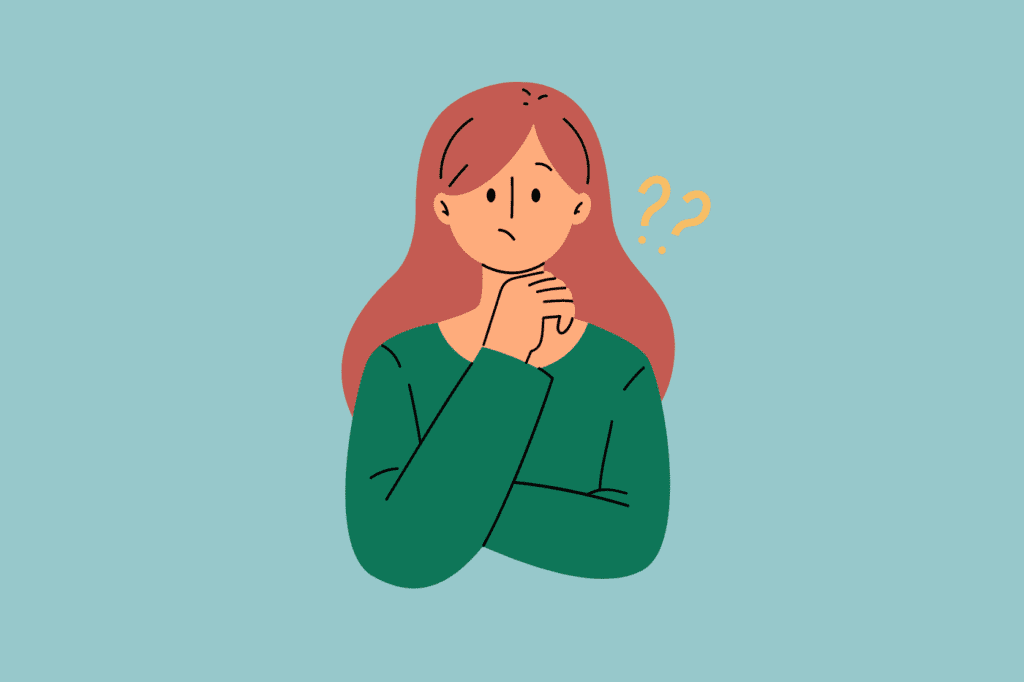
Commonly Mistaken for Social Anxiety: What’s the Difference?
Shyness vs. Social Anxiety: While they might seem alike, social anxiety involves a deeper fear of negative judgment, impacting your daily life.
Untreated Social Anxiety: What’s at Stake?
Symptom Escalation: Without treatment, social anxiety symptoms can intensify, affecting your relationships, work, and overall well-being.
Visible Signs of Social Anxiety: Do People Notice?
Varies Among Individuals: Whether visible or subtle, the signs of social anxiety differ from person to person.
Is Social Anxiety Reversible? Exploring Treatment Options
Manageable with Treatment: Social anxiety isn’t a one-size-fits-all “reversible” condition, but with interventions like CBT and lifestyle changes, symptoms can significantly improve.
Social Anxiety vs. Autism: Understanding the Differences
Distinct Conditions: Social anxiety and autism are separate entities. While social anxiety involves fear of judgment, autism includes various developmental differences.
Outgrowing Social Anxiety: Is It Possible?
Possible with Time and Support: While some may naturally outgrow social anxiety, many benefit from targeted interventions and professional support.
Parental Influence on Social Anxiety: Fact or Fiction?
Contribution, not Causation: Parents play a role, but social anxiety is a mix of genetics, environment, and individual factors.
Takeaway
The strategies we’ve shared are more than just words on a screen – they’re tools designed to empower you, offering a roadmap to navigate the social landscape with confidence.
Remember, progress takes time, and each step forward is a victory. Embrace the journey, celebrate the small wins, and be kind to yourself along the way. If social anxiety is still holding you back, seeking support from friends, family, or professionals is a courageous step forward.
So, are you ready to rewrite your social narrative? Take a deep breath, embrace the challenge, and step into a future where social situations are opportunities for growth rather than obstacles.







